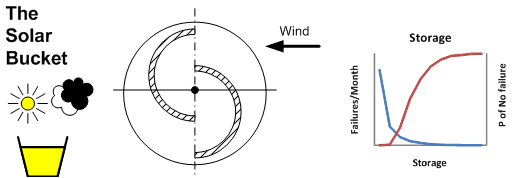Electric vehicles have been around for more than a century, battery trams were tried out in Brighton and other towns around 1890, although in Brighton's case the job was eventually given to a horse. Recently, increasingly larger bits started falling from our aging hatchback and it started sinking into the tarmac outside the house. It had served us well, it had recovered at least one child from university, carried the detritus of many amateur operatic productions and done my wife's daily commute. My wife is the main driver, so I opted out of the decision process. But I did secretly look at electric vehicles. The attraction of electric vehicles is their low tail pipe emissions, low energy costs and the potential to be integrated into sustainable energy systems.
Left to me, we would have had a Renault Twizy, but I don't spend my weekends trundling hefty opera singers around the country. My wife chose a small red box which weighs 950 kg and emits 103 gm of CO2 per km. Electric cars have zero tail pipe emissions, but they rely on smoke stacks, nuclear reactors and wind farms which combine to produce very roughly 0.45 kg/ of CO2 per kwh. Equally roughly, an electric vehicle might average 0.2 kwh/km which works out at 90 gm of CO2 per km. It's an improvement, but not a big one.
However, the energy costs are much lower. The fuel consumption of the red box is quoted as 4.7 l/100 km which at current petrol prices means £5.30/100 km. For an electric vehicle doing 0.2 kwh/km 100 km and charged off-peak, the cost would be roughly £1.40.
We bought second hand, my perception of new vehicle costs is £10k for a petrol vehicle and £20k for an electric one. I'm hazy on the costs associated with batteries, but I'm guessing they are the equivalent of petrol vehicle servicing, but I need to know more. However, you do the sums, it would take a few years to recover the higher front end costs of an electric vehicle from the lower running costs.
So despite my interest in sustainable energy, we ended up with an update on what had before. This is a personal example, but for sustainable energy systems to win over hearts and minds they must offer similar benefits for similar costs to conventional systems.
Reference:
Brighton Tramways, Robert J. Harley, Middleton Press
Wednesday 14 September 2016
Subscribe to:
Posts (Atom)


